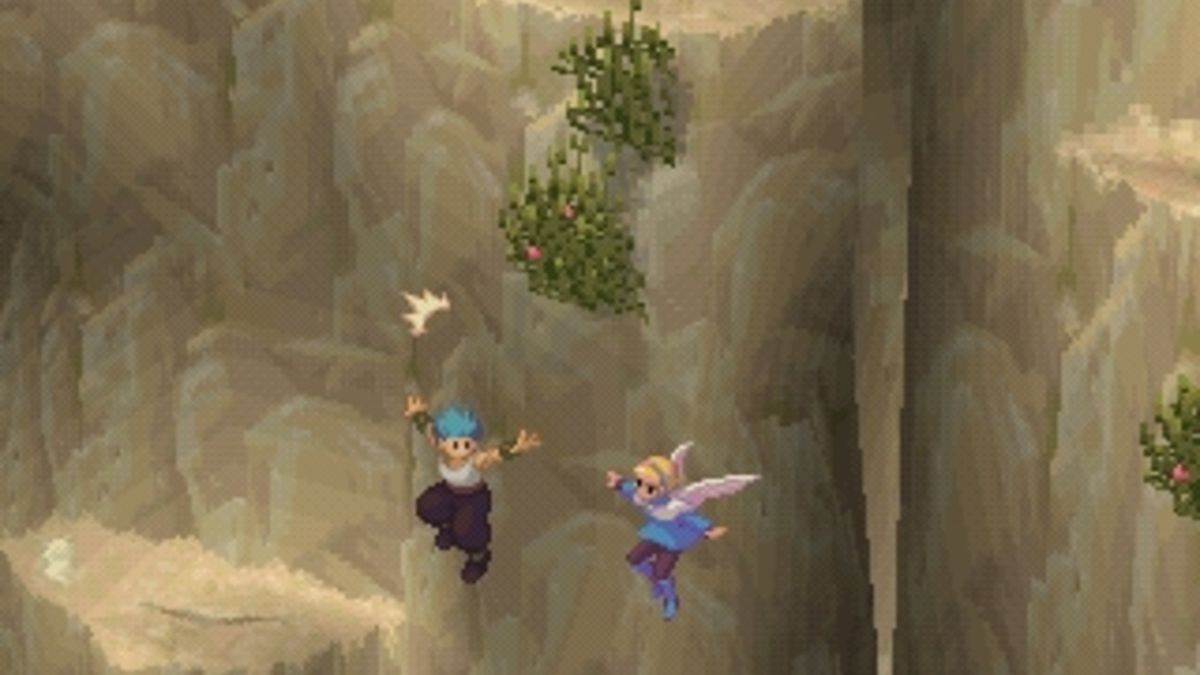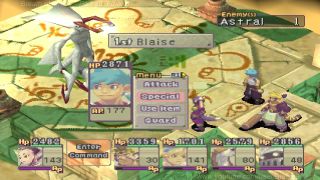Revisiting this 24-year-old JRPG classic from the PS1 era proves there's no smoke without fire
Opinion | Breath of Fire 4 is somehow almost a quarter of a century old – here, Play magazine remembers what made it so great

Capcom's Breath of Fire series was always a solid performer, but it played second fiddle to Square and Enix's JRPGs throughout the '90s. The fourth instalment – released on PS1 after Final Fantasies VII-IX had redefined the genre, and attention was turning to PS2 – was never going to buck the trend. Yet those who gave it a chance found a compelling adventure with new tricks of its own.
Breath of Fire 4 is still a traditional JRPG, and while not a direct continuation of previous games, it retains their recurring motifs. As ever, the main character is a boy named Ryu, who discovers he can turn into a dragon. And it should surprise no JRPG veteran to learn that Ryu is an amnesiac, whose destiny intertwines with that of a godlike being recently awakened from a long slumber. Naturally, before the two meet in a final showdown, Ryu assembles a gang of fight-happy friends and gets embroiled in the political shenanigans between two warring continents.
Burning down the house


This feature first appeared in PLAY magazine - Subscribe here to save on the cover price, get exclusive covers, and have it delivered to your door or device every month.
Expect the usual cocktail of towns, dungeons, plot twists, and random battles, then, plus occasional distractions like rearranging barrels or searching for kids playing hide-and-seek. Oh, and fishing. No fantasy RPG is complete without its angling subgame, and Breath of Fire 4 contains one of the more comprehensive examples. Ignore your quest and you can while away hours on rivers, lakes, and oceans hooking anything from jellyfish to whales.
It's not only the lure of the aquatic that makes Breath of Fire 4 one of the better JRPGs of its time, though. For one thing, it has some great characters, drawing on the series' penchant for human-animal hybrids to bring us the likes of fox-eared military girl Ursula and Scias the mercenary sword-spaniel. Wisely, when it came to depicting this crew and the land around them, Capcom didn't try to compete directly with the cinematics of Final Fantasy. Instead, chunky sprites are laid over polygonal backgrounds, showing off Tatsuya Yoshikawa's striking character designs. It's a forward-thinking step that fills the world with personality, right down to routine monster encounters against square-jawed dinosaurs and bipedal mammoths.
Another clever twist is that the story also puts you in the shoes of archvillain Fou-Lu. It turns out he's Ryu's 'other half', you see, but quite literally in that they're two parts of the same being. Since they're in tune with each other, it makes sense that you experience Fou-Lu's journey to the imperial capital first hand, swatting monsters like flies on the way. It's a little like how Final Fantasy VII introduced Sephiroth, showing early on what you're up against. But here the idea goes further, as Fou-Lu regains power from the battles you fight, and you begin to understand his motives. He also gets the best musical accompaniment, backed by chanting and sitar twanging from the game's stellar soundtrack.
"While it’s a little slow and repetitive by modern standards, it’s an intriguing system that rewards inventive play"
Of course, the game's success equally rests on its combat, since that's your primary activity. While it's a little slow and repetitive by modern standards, it's an intriguing system that rewards inventive play. Crucially, only three of your eventual roster of six characters. fight at a time, but you can switch in others between turns. It's easy to alter tactics as needed, then, or to protect injured party members by shuffling them out of harm's way. Plus it helps you get the most out of the 'combo' system, which allows you to generate more damage if you chain certain attacks together. Have one character cast wind magic, for example, and another follow up with a water spell, and the latter will transform into a more powerful thunder attack.
All these neat touches weren't enough to change the fortunes of the series, however, and when Capcom got more experimental with the fifth game on PS2, the results were even less favourable. Breath of Fire was put on ice, and since then there's only been one short-lived revival, a free-to-play mobile and browser game in 2016 that never made it out of Japan. It's fair to say the series' flame has been extinguished for good now, but Breath of Fire 4 is still worth tracking down, to see how brightly it once burned.
Sign up to the 12DOVE Newsletter
Weekly digests, tales from the communities you love, and more
This feature first appeared in PLAY magazine - Subscribe here to save on the cover price, get exclusive covers, and have it delivered to your door or device every month.
Jon Bailes is a freelance games critic, author and social theorist. After completing a PhD in European Studies, he first wrote about games in his book Ideology and the Virtual City, and has since gone on to write features, reviews, and analysis for Edge, Washington Post, Wired, The Guardian, and many other publications. His gaming tastes were forged by old arcade games such as R-Type and classic JRPGs like Phantasy Star. These days he’s especially interested in games that tell stories in interesting ways, from Dark Souls to Celeste, or anything that offers something a little different.

Final Fantasy 7 Rebirth PC players are already using mods to control all 9 playable characters, including Sephiroth and Zack, at the same time

Final Fantasy 7 Rebirth's award-winning Aerith actor once worried she wasn't "cut out" for the role, but was reassured by a co-star that Square Enix "cast you for a reason"
Most Popular


